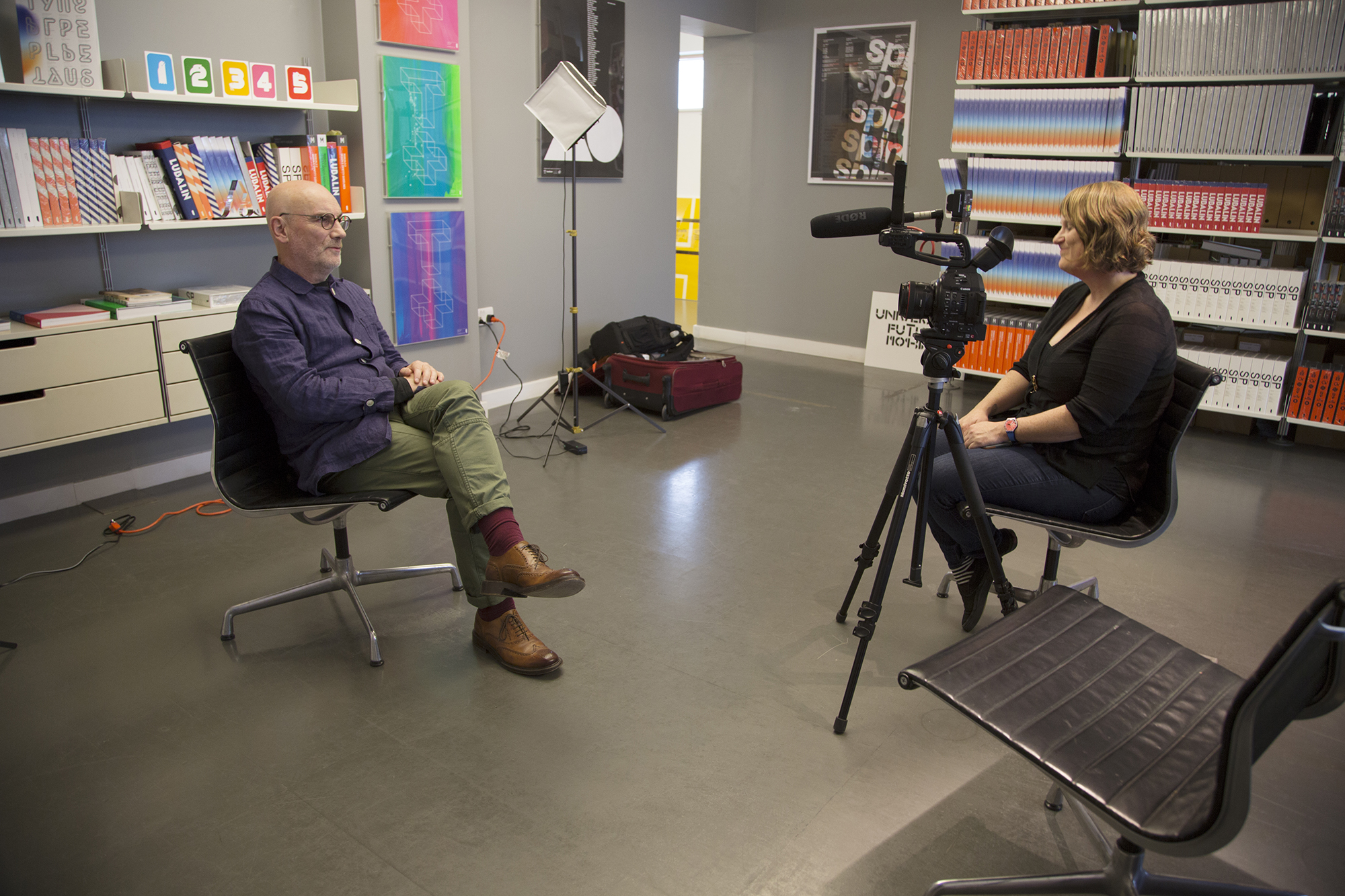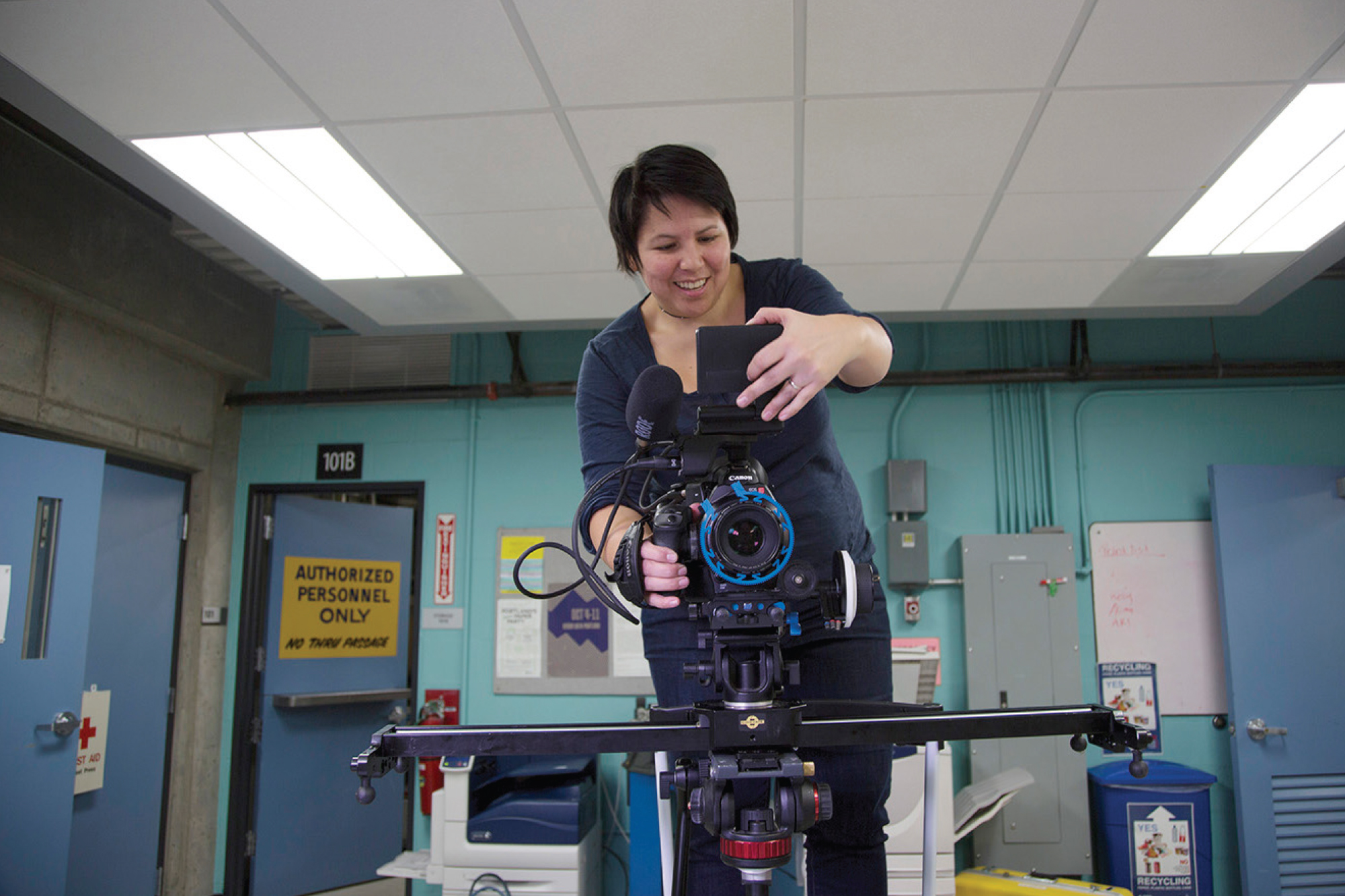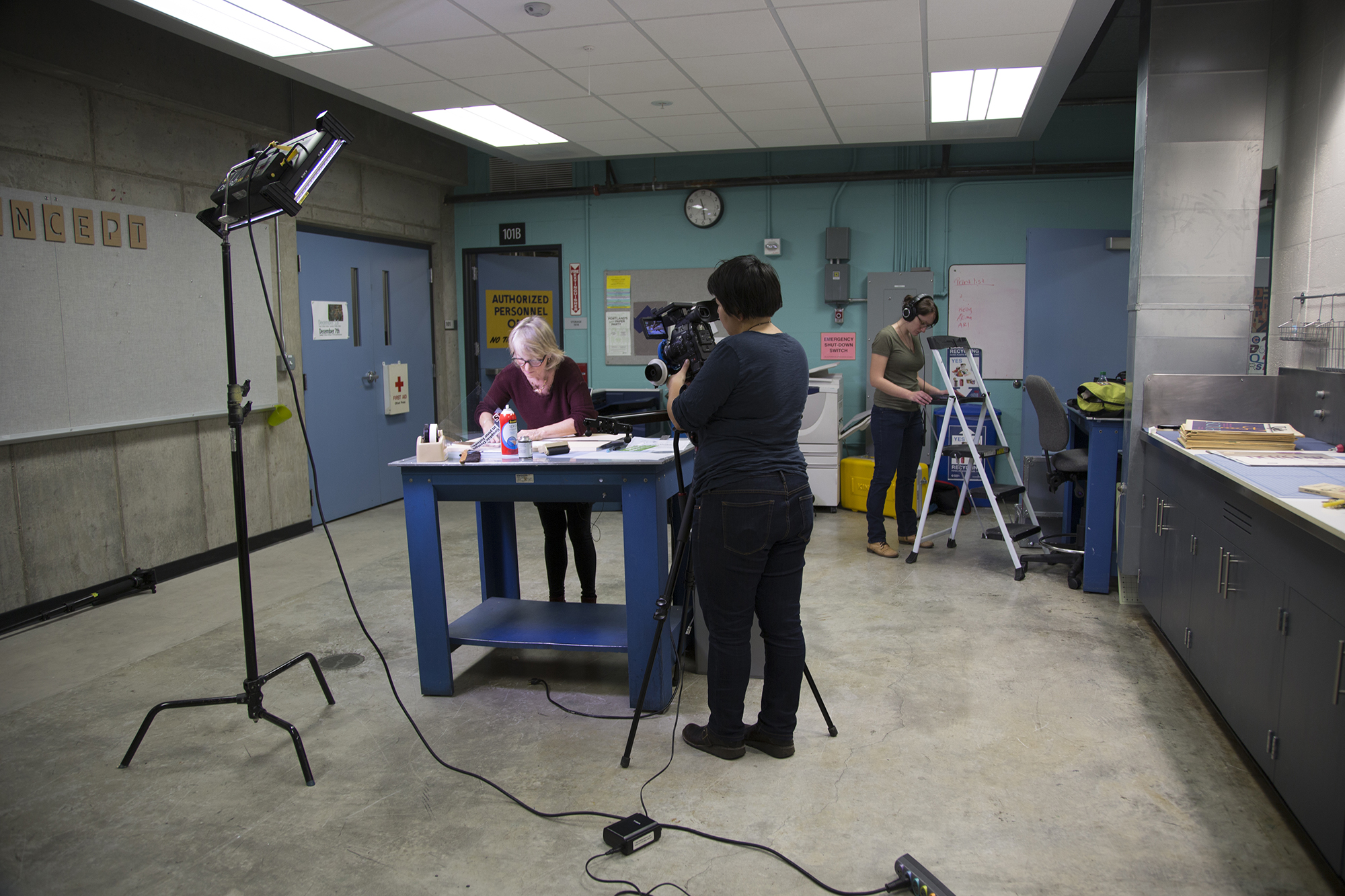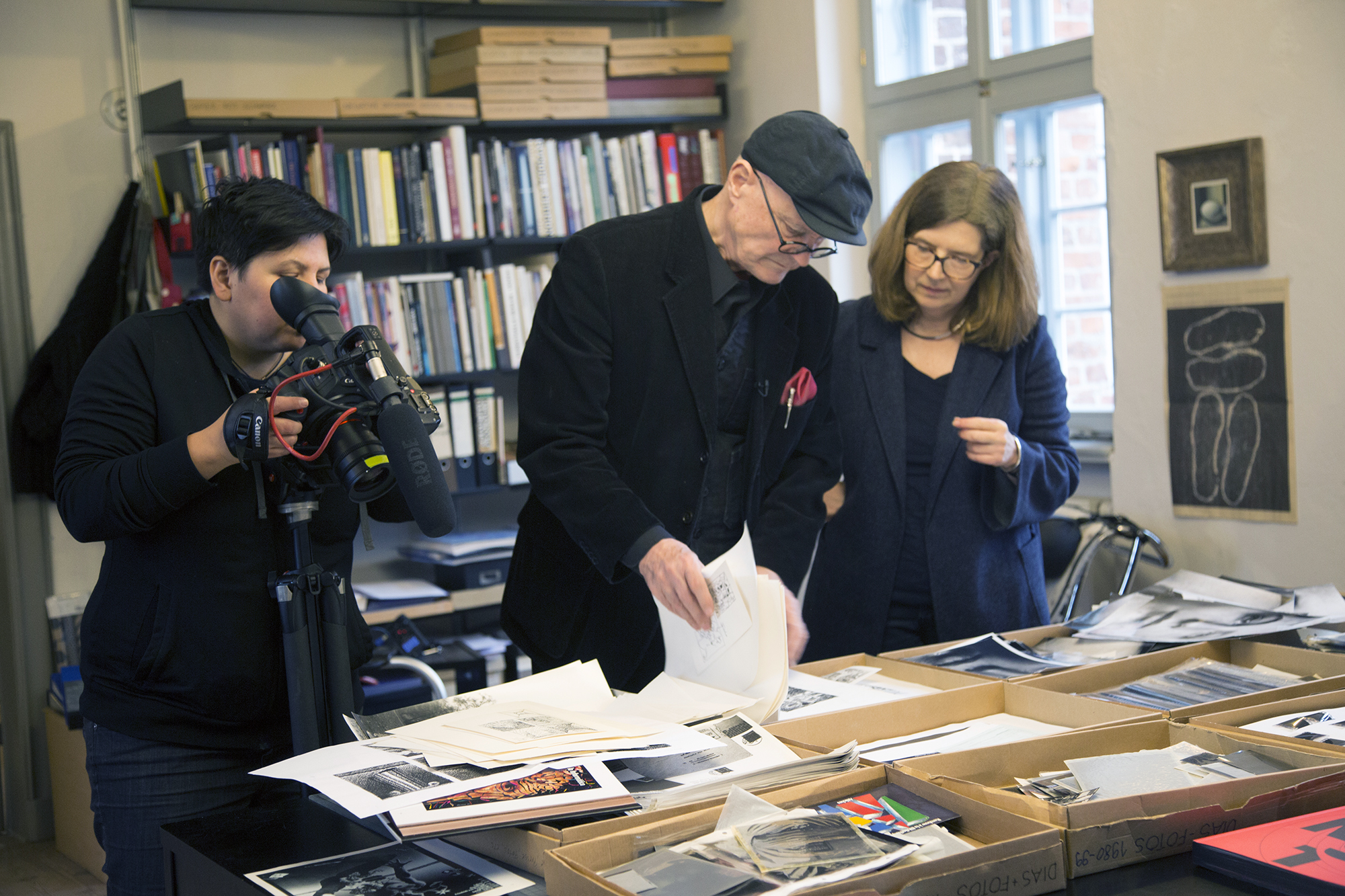Profile: Briar Levit, Designer and Filmmaker
Often, the best stories start with an obsession. In the case of designer, professor, and filmmaker Briar Levit, the story begins in a thrift store.
The Means to “Graphic Means”
Briar Levit’s story begins with an obsession with technical manuals of pre-digital graphic design and typesetting from the ’80s, ’70s, and ’60s that she would pick up from the local Goodwill Store. “I was just fascinated by the processes that I missed by just a hair.” Being a graphic designer in the mid 1990s, she missed working with dry-transfer type sheets, Rubylith, and photo-stat cameras by just 5–10 years but she was intrigued by these outmoded technologies.
“I would share these old manuals with my studio-mates, who were younger than me, and they had no idea what they were. So, I thought I would bring them into the classroom, but it seemed like they should be shared with more people.”
Being a book designer by trade, Briar first thought that she would write a book about the old techniques. But after seeing several recent design-centric films, she thought,
““Maybe a movie is a better process for sharing the information. I think if this had been a book first, it would have reached a much smaller audience.””
And so began the process of directing and producing “Graphic Means” a documentary film that will have its world premiere on April 15th at the ByDesign Film Festival in Seattle, Washington.
The official film bio describes it best, “Graphic Means is a journey through this transformative Mad Men-era of pre-digital design production to the advent of the desktop computer. It explores the methods, tools, and evolving social roles that gave rise to the graphic design industry as we know it today.”
Feminism and Filmmaking
Before becoming an Assistant Professor at Portland State University (and a filmmaker), Briar was the art director of “Bitch” magazine, an independent quarterly magazine dedicated to providing a thoughtful feminist response to popular culture. She sees this as especially formative in her career as a designer.
““I use a feminist lens for everything I do. I’d say my Dad raised me that way, and I took it to the next level.””
Traditionally, filmmaking has a very low percentage of woman in its ranks and Briar was aware of this. When starting the process for the film she says, “I knew the stats about women in film and I saw this as a chance to make a choice. Why not use that choice to show something different?” So Briar specifically chose a crew entirely staffed with women including the Director of Photography, Editor, Sound Engineer, and Motion Designer.




In fact, the only man on the team is the music composer Norm Chambers. Briar chose Chambers because, “I wanted electronic music as I thought it would work well for the score and I chose him because he makes electronic music with analog instruments—which is a fun parallel with the movie.”
An Accidental Filmmaker
When asked about the skills that Levit has which makes her a good filmmaker, she laughs. “I guess I’m pretty organized. Filmmaking is about organization and managing lots of content and people and you have to be able to dive into that granular organization. Which mainly boils down to spreadsheets.”
““Being willing to put yourself out there—like sending emails to people that are my heroes—was a bit scary.””
But starting the film was not without allowing herself to be uncomfortable. “Being willing to put yourself out there—like sending emails to people that are my heroes—was a bit scary. But the worst they could say would be ‘no’ and very few said no. Most people got very excited about talking about this period.”
With the response from the work-in-progress screenings of “Graphic Means” being overwhelmingly positive, one can trust that Briar’s organization and spreadsheets are working out quite well.









